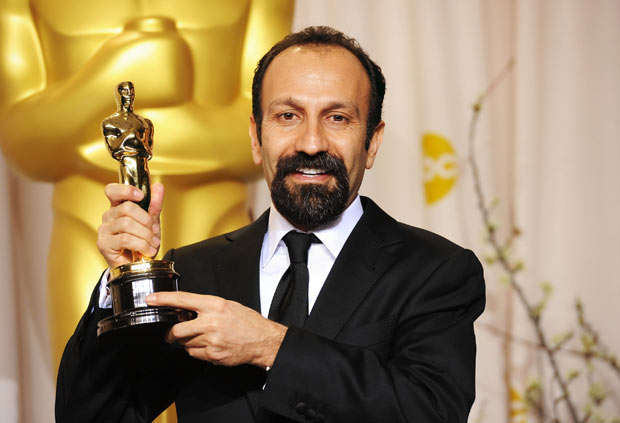Asghar Farhadi, the filmmaker who directed the Oscar nominated film The Salesman, cannot attend the Academy Awards next month because of an executive order passed by the new US president Donald Trump. The order, which is widely being called the “Muslim ban,” bans citizens from seven Muslim-majority countries from entering the US for a period of 90 days. The order will prohibit Farhadi, who hails from Iran, from attending the ceremony. The Salesman has been nominated for Best Foreign Language Film at the Academy Awards.
Confirmed: Iran’s Asghar Farhadi won’t be let into the US to attend Oscar’s. He’s nominated for best foreign language film…#MuslimBan
— Trita Parsi (@tparsi) January 28, 2017
A D V E R T I S E M E N T
Farhadi’s film A Separation won the Academy Award for Best Foreign Language Film in 2012, becoming the first Iranian film to do so.
The full text of the executive order Trump announced this week can be found here. Apart from a four-month ban on all refugees entering the country, Trump has also signed an indefinite ban prohibiting entry to Syrians. For 90 days, visas will not be issued to nationals from Iran, Iraq, Libya, Somalia, Sudan, and Yemen.
Farhadi has since released a statement where he talks about the fear instilled by the “us and them” mentality fuelling the ban.
“Just as I had stated to my distributor in the United States on the day the nominees were announced, that I would be attending this ceremony along with my cinematographer, I continued to believe that I would be present at this great cultural event.
However, it now seems that the possibility of this presence is being accompanied by ifs and buts which are in no way acceptable to me even if exceptions were to be made for my trip. I would therefore like to convey via this statement what I would have expressed to the press were I to travel to the United States. Hard-liners, despite their nationalities, political arguments and wars, regard and understand the world in very much the same way. In order to understand the world, they have no choice but to regard it via an “us and them” mentality, which they use to create a fearful image of “them” and inflict fear in the people of their own countries.”
The director also said he hoped that nations wouldn’t be further divided because of the current situation.
“To humiliate one nation with the pretext of guarding the security of another is not a new phenomenon in history and has always laid the groundwork for the creation of future divide and enmity. I hereby express my condemnation of the unjust conditions forced upon some of my compatriots and the citizens of the other six countries trying to legally enter the United States of America and hope that the current situation will not give rise to further divide between nations”
Several Hollywood stars and celebrities have since condemned the new President’s ban. From Mahershala Ali’s powerful speech on immigration at the SAG Awards to Iranian actress Taraneh Alidoosti’s decision to boycott the Oscars in protest against the order, the ban has triggered wide outrage in the film fraternity. Alidoosti, who stars in the The Salesman, announced last week that she wouldn’t attend the Academy Awards as a form of protest against Trump’s ban on Muslims in the country.
Trump’s visa ban for Iranians is racist. Whether this will include a cultural event or not,I won’t attend the #AcademyAwards 2017 in protest pic.twitter.com/CW3EF6mupo
— Taraneh Alidoosti (@t_alidoosti) January 26, 2017
Joining Alidoosti’s boycott, Iraqi filmmaker Hussein Hassan also withdrew his US visa application for clearance to attend the North American premiere of his film The Dark Wind at the Miami Film Festival. “This is just a deeply upsetting turn of events,” festival director Jaie Laplante told IndieWire in an interview. “We got an email from his producer on Tuesday saying there were all these unusual delays. He has applied for visas in the past at the US consulate and received an answer in two days.”
Subsequently, the Academy of Motion Picture Arts and Sciences issued a statement condemning the deportation and extending their support to Farhadi.
“The Academy celebrates achievement in the art of filmmaking, which seeks to transcend borders and speak to audiences around the world, regardless of national, ethnic, or religious differences. As supporters of filmmakers—and the human rights of all people—around the globe, we find it extremely troubling that Asghar Farhadi, the director of the Oscar-winning film from Iran A Separation, along with the cast and crew of this year’s Oscar-nominated film The Salesman, could be barred from entering the country because of their religion or country of origin,” said a spokesperson from the Academy.
Feature Image: Deadline



